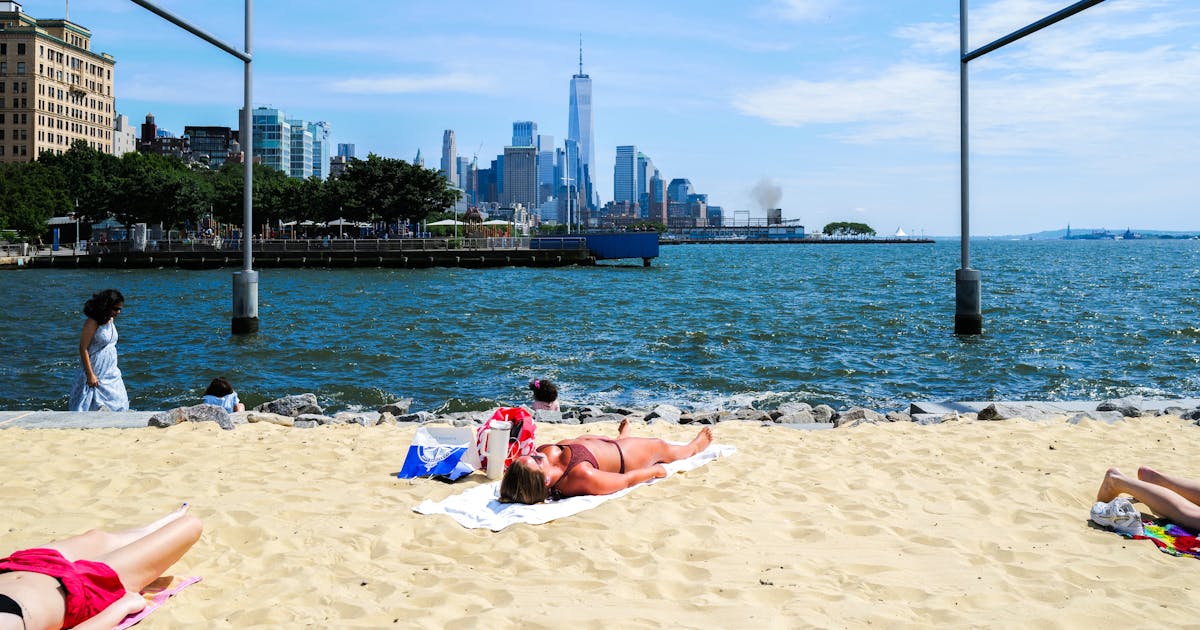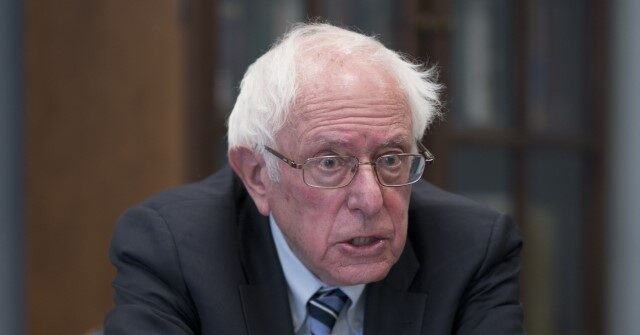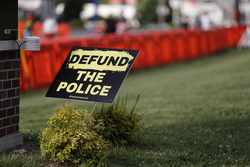They should have seen the signs.
Following years of economic upheaval, public pessimism reigned supreme. The
population lost faith in its government. Their leaders seemed old and out of
touch. As their political system began to fracture, citizens despaired at the
possibility of real social change. Anxiety, depression, and substance abuse
soared. Life expectancy at birth began
to decline, an unprecedented occurrence in an
industrialized country in peacetime.
To cope, Soviet citizens enduring
the daily stresses of a failing state turned inward. They called it “internal
emigration,” a metaphor for the imagined inner
world to which ordinary people could retreat to find solace. This mental
relocation took many forms, but for most Soviets, cultivating a fierce
spiritual autonomy—through music, literature, poetry, art, foreign language
learning, private gardening, or immersing themselves in nature—provided the
only respite from the grinding indignities of an aging political bureaucracy
insensitive to the needs of the populace.
Today, people in the United States
find themselves in a similar position. At ages 81 and 78, the candidates for the
2024 presidential election are the oldest in U.S. history. The insider
machinations—like those of a secretive Politburo—that allowed both
men to lock up their party’s nominations without true democratic vetting have fueled widespread dissatisfaction.
Trump is currently ahead in the
polls. Mark Esper, Trump’s secretary of
defense, has openly stated that the former president represents “a threat to democracy, democracy as we know it, our
institutions, our political culture, all those things that make America great
and have defined us as, you know, the oldest democracy on this planet.” After Joe Biden’s lackluster
first debate performance, and the recent Supreme
Court decision granting Trump immunity for official actions taken as president,
a resigned ennui permeates online discourse.
The nihilism seeping into American
culture today resembles that which marked the last decade of the Soviet bloc
countries. After the 1986 nuclear accident at Chernobyl, it took 18 full
days before then–Premier Mikhail Gorbachev delivered a national address to explain the disturbing rumors. At
the start of the Covid-19 pandemic, U.S. government officials tried to cope
with perceived mask shortages by telling the noble
lie that masking was unnecessary. Soon after,
President Trump downplayed the pandemic and falsely
claimed that a combination of hydroxychloroquine
and azithromycin offered protection against
Covid-19. Both contexts birthed innumerable
conspiracy theories.
Trump peddles the biggest
conspiracy theory of all: that Democrats stole the 2020 election through
massive fraud. Nearly 70
percent of Republicans believe him. This
suspicion reflects a larger trend. In 2024, the Pew Research Center found that
“trust in the federal government has been
consistently low for the last several decades,” with only about one
in five Americans saying that “they trust the
government in Washington to do what is right just about always/most of the
time.”
We also find deteriorating
mental and physical health. According to
Gallup, rates of depression in the United States are at an all-time high, with
almost a
third of adults reporting that they’ve received
an official depression diagnosis in their lifetimes. In 2023, about 17.8
percent of Americans said they were currently depressed, up from 10.5 percent
in 2015. Alcohol consumption has increased in recent years, partially spurred by the pandemic
lockdowns. But even before 2020, U.S. life
expectancy at birth had been declining since 2015, in part reflecting what the economists Anne
Case and Angus Deaton dubbed “deaths
of despair.” These include excess deaths from alcoholism,
drug overdoses, and suicide, not only for working-class white men but, increasingly, for people
of color.
Americans have responded to their
feelings of helplessness with their own kind of internal emigration.
Frustration at the political sclerosis in Washington has turbocharged escapist
trends. Romance and “romantasy” authors like Colleen
Hoover and Sarah
J. Maas now dominate the fiction bestsellers
lists with their uplifting tales of happily-ever-after. “At a time when
a lot of us are overwhelmed by outer problems that we can’t really fix,
retreating to a world where the main worry is if person A and person B are
going to figure out their issues in time to have a fulfilling relationship,
while probably not worrying about their president starting a nuclear war, feels
pretty dang good,” writes
Alex Acks at Book Riot.
Witness also the ubiquitous ethos
of self-care. In 2022, the global wellness economy was worth $5.6
trillion, with people losing themselves in yoga
retreats, ayahuasca journeys, and mindfulness meditation. Today, millions of Americans have downloaded apps like Calm and Headspace to guide them into some sort of temporary equanimity. “The
more frightening the economic outlook and the more floodwaters rise,” Laurie
Penny reflects
in The Baffler, “the more the public conversation is turning toward
individual fulfillment as if in a desperate attempt to make us feel like we
still have some control over our lives.”
Faced with a broken two-party
system, growing partisan divisions, a deeply politicized Supreme Court ignoring
serious charges of ethical misconduct, gerrymandered voting districts, a widely
unwanted replay of the 2020 election, and the possible demise of American
democracy as we know it, who wouldn’t want to lose themselves in a feel-good
beach read during a vinyasa bootcamp at a spa retreat on a remote island? As
the poet Audre Lorde once said, “Caring for myself is
not self-indulgence, it is self-preservation.”
But internal emigration can
cultivate the habit of apathy. The very real desire to protect oneself from the
pressures of an unjust system promotes
disengagement and undermines our cognitive capacities for hope. More importantly, when the system unexpectedly changes,
we may be unprepared to fight for a new world.
Obviously, the challenges
facing American democracy differ from those once faced by the authoritarian
countries of the Soviet bloc. Talk of democratic
collapse might feel like alarmist nonsense. But to those living in the old
socialist countries of Eastern Europe, their political system also seemed
permanent and unchangeable. My colleague, the anthropologist Alexei Yurchak, explained that for late-Soviet citizens, “Everything was forever
until it was no more.” In my own extensive fieldwork in Bulgaria, many
men and women born before 1989 told me they never considered that they could
live under any other system than socialism.
In his satirical novel The Short End of Sonnenallee, Thomas
Brussig captures a similar sentiment through the thoughts of his East German
protagonist, Mario. When faced with the idea that the Berlin Wall might one day
disappear, Brussig writes, “This was so outrageous to Mario, it was beyond
imagining. He could never have formulated the thought that the Wall could just
suddenly not be there.”
Massive political upheavals
usually follow seductive promises, and the end of the Cold War dangled the
prospect of freedom and prosperity for all. It didn’t turn out that way. Instead,
East Europeans suffered through an economic decline longer and deeper than the
Great Depression of the 1930s. For most, it brought skyrocketing inequality,
grinding poverty, and the transfer of once collectively owned property into the
hands of esurient oligarchs. A popular joke
in the 1990s was: “What was the worst thing about communism? The thing that
came after it.”
Those who had most successfully
cultivated their inner sanctuaries found themselves incredulous at the sudden
collapse and the changes that followed. Instead of helping to rebuild
their liberated societies, they stood immobilized as carpetbagging outsiders,
rapacious criminals, and sometimes corrupt politicians swept in to administer
“shock therapy.”
With so many people locked away in
their inner sanctums, the transition to democracy and free markets was
accomplished quickly and in a decidedly undemocratic way. Anatoly Chubais, the
Russian privatization minister between 1992 and 1994, told a Washington, D.C., audience in 1999 that his efforts to
transfer public property into private hands was accomplished “Bolshevik-style,”
in the face of universal public and
governmental opposition. Powerful new elites steamrolled the population because
people became too comfortable with the habit of apathy.
Democracies do
die. As more Americans sink into their own internal exiles, we must recall
the lessons of the late twentieth century. Political systems can collapse
overnight. Self-preserve as much as possible, but still stand ready to resist
and shape the new world that emerges. Otherwise, we won’t be laughing in 2032
if someone repeats an old joke: “What was the worst thing about the United
States? The thing that came after it.”



